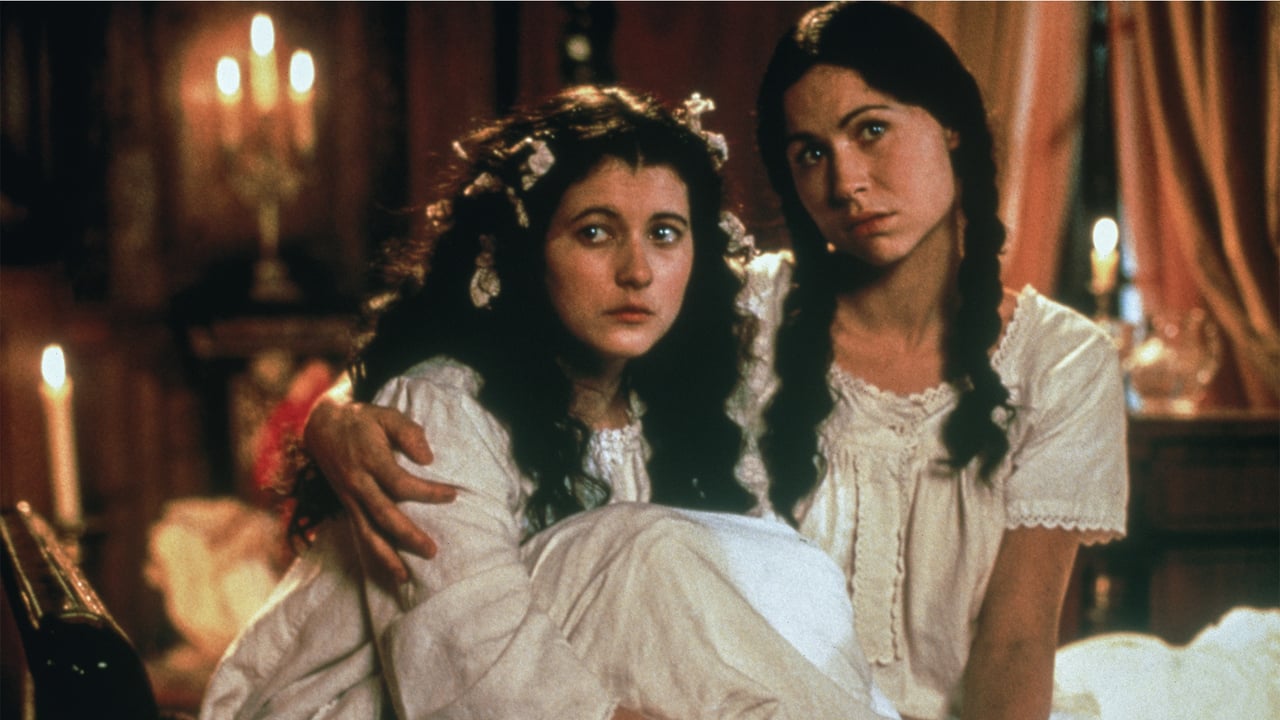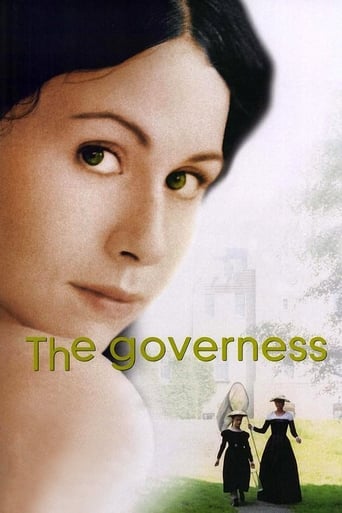Harockerce
What a beautiful movie!
TrueJoshNight
Truly Dreadful Film
Micah Lloyd
Excellent characters with emotional depth. My wife, daughter and granddaughter all enjoyed it...and me, too! Very good movie! You won't be disappointed.
Staci Frederick
Blistering performances.
phd_travel
Minnie Driver acts well in this fantastical story. Its about a Jewess who pretends to be a Protestant, becomes a governess who helps stablize photography in its early days, and has a torrid affair with her employer. Then finally she becomes a famous photographer.The nudity and romance between Minnie and Tom Wilkinson is tedious and kind of disgusting. He's just way too old for her. Jonathan Rhys Meyers plays a love sick puppy in one of his earlier roles.It's obviously based on a rather bad novel but it's beautifully filmed.Worth a watch if you are a fan of Minnie. Otherwise the romance leaves a bad after taste.
edwagreen
Despite strong performances by Minnie Driver and Tom Wilkinson, this film fails to ignite the imagination of the viewer.By the way, what has become of Ms. Driver? She had such a potential in the film industry.This to me was almost like an 1850s version of Yentl without the musical fanfare. With the death of her father, Driver takes a position as a governess to a Christian family, hiding her Jewish identity.While I realize that this is a period peace, it was awfully dull even for 1850 England and Scotland.The lady of the house is most irritating with that sing-song voice of hers. I expected her to refer to Driver as dear at any moment. What kind of name is Mary Blackchurch? I know that Driver is trying to pass herself off as a Christian, but does this name signify all the way?In the interim, Mary finds love with the young charge's father (Wilkinson) and his emotionally unbalanced son.In the end, the only thing that we see accomplished is that Mary has found a profession to provide for her family-photography. Did we really have to be subjected to what was happening throughout the film?The early scenes of Judaism practiced in 19th century England and the cholera epidemic at the end could have been played up more. There is a definite underlying feeling of anti-Semitism by the Wilkinson family but that's never allowed to come out.
saska-3
THE GOVERNESS is a moody period piece, the meandering story of a Jewish woman who, upon the death of her father, sets out to 1830's Scotland, posing as a Gentile to get work to support her family in London.Rosina - or Mary, as she calls herself in a none too subtle piece of symbolic writing - is a rudderless child, a socialite with dreams of being an actress. She strikes up an alliance with her employer, and by accident solves a crucial problem in his research with photography. Giddy with success, they begin a halting and uncomfortable affair while the eldest son of her paramour falls hopelessly (and inexplicably) in love with her.And like a child, she fails to understand the consequences of her actions - in the end, betraying those she deceived in order to make a life for herself.Many claim this is something of a feminist manifesto, but I disagree. Whether intended or not, this film only resonates with me if I think of it as a cautionary tale. In the end, Rosina's greatest disappointment is the truth - that she lied, happened upon a way to help a man she wanted to be both her father and her lover, and in the end contributed nothing but destruction. As such, the end of the film gives me the impression that nothing she did, no one she used, made her happy - and that is exactly as it should be.Did I need a movie this long and langorous to teach me this lesson? Not at all. On the contrary, had it not been for excellent cinematography, unique score and my hope that she'd get her come-uppance, I wouldn't have stuck with it to the end of the film.Fans of Minnie Driver will likely be disappointed by her uneven performance but may wish to see it anyway; I doubt young female fans of Jonathan Rhys-Meyers will be able to stay awake for the payoff they expect, and I can't help thinking this holds too little cultural detail to be of interest, even to photography buffs. The 3 points I award the film are solely for its visual style and score. On the strength of their other work, I assume the actors' performances are so disappointing because of a poor script and worse directing, but they are, in the end, unremarkable.
KCa9957286
This extraordinary period piece was breath taking and at times painfully real. Rosina (Mary Blackchurch) becomes interested in her employer's experiments with photography fixation and subsequently falls in love (while pursued by her employer's son). Rosina's first experience with love is tumultuous and passionate. Rosina's employer, played brilliantly by Tom Wilkinson, shared her passion but was unable to embrace the new emotions awakened within. Charles Cavendish, like his castle, was at times dim and hollow. Rosina (Minnie Driver) tries to bring life to an otherwise cold and lifeless environment. Some viewers have wondered why the Rosina character would fall for the older man, when the son (Henry) was obviously smitten. Considering the immature and bizarre behavior of Henry Cavendish (played by Jonathan Rhys-Meyers), should anyone wonder at all? The senior Cavendish despite his shortcomings possessed a mysteriously masculine allure that would charm any young woman looking for both a lover and a father figure. Unfortunately, in this story the viewer will witness that love (alone) is not always enough to sustain a relationship. This film is well done and worth watching.

